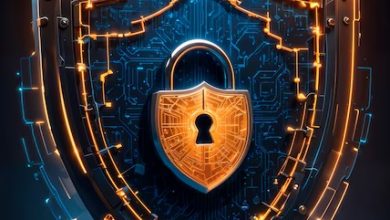
CYBER CRIME AND SECURITY ACT IN NIGERIA
Cyber crime and security act in Nigeria refers to criminal activities that are carried out using computers, computer networks, or the internet. These activities may involve various forms of illegal or malicious actions, including but not limited to hacking, identity theft, fraud, spreading malware, online harassment, cyber espionage, and more. Cybercriminals use technology to target individuals, organizations, or even governments for financial gain, information theft, disruption, or other malicious purposes. How and why cyber crime with WIKI PEDIA and new tehcnology practices on info tech

There are several reasons why cyber crime occurs
- Financial Gain: Many cyber crime are financially motivated. Cybercriminals seek to steal money, valuable information, or assets from individuals or organizations. This can include activities like online fraud, ransom ware attacks, and phishing scams.
- Anonymity: The anonymity provided by the internet and digital tools makes it easier for criminals to carry out illegal activities without being easily traced or identified.
- Low Risk: Cybercriminals often perceive a lower risk of being caught or prosecuted compared to traditional forms of crime. The global nature of the internet also means that criminals can operate from one country while targeting victims in another, making it challenging for law enforcement to track them down.
- Technological Advances: As technology continues to advance, cybercriminals find new and creative ways to exploit vulnerabilities in software, hardware, and human behavior. The constant evolution of technology provides an ever-expanding attack surface for cybercriminals.
- Political or Ideological Motives: Some cybercrimes are carried out for political or ideological reasons. These can include hacking into government systems, disrupting critical infrastructure, or stealing sensitive information to further a particular cause or agenda.
- Insider Threats: Cybercrime is not limited to external actors; insider threats from employees or individuals with access to sensitive information can also pose significant risks to organizations.
- Lack of Awareness: In some cases, individuals and organizations may not have adequate cybersecurity measures in place, making them vulnerable to cyberattacks. Cybercriminals often exploit these vulnerabilities.
Fighting against cyber crime
To combat cybercrime, individuals and organizations must prioritize cyber security by implementing strong security measures, keeping software and systems up to date, educating themselves and their employees about potential threats, and collaborating with law enforcement and cybersecurity experts to identify and mitigate risks. Additionally, governments and international organizations work together to establish laws and regulations aimed at deterring and prosecuting cybercriminals.
The Cyber Crime
Prohibition and Prevention Act of 2015 makes it illegal for anyone to intentionally access a computer system or network in whole or in part without authorization with the goal of obtaining computer data, gaining access to any software, securing access to trade secrets, or obtaining classified information. Maximum punishment: a term of not more than seven (7) years in jail, a fine of not more than N7,000,000, or both such a fine and incarceration.
Denial-of-service attacks : Cyber Crime
Section 8 of the Cybercrimes Act, which addresses denial of service, makes it unlawful for anyone to intentionally commit a crime without legal authorization that seriously impairs the operation of a computer system by entering data that prevents the computer system from serving its intended purpose. Maximum punishment is a sentence of not more than two years in prison, a fine of not more than N5.000.000, or both.
Phishing
According to the cybercrimes act, anyone who attempts to obtain sensitive information, such as usernames, passwords, and credit card numbers, by posing as a reliable entity in an electronic communication via email or instant messaging, asking a user to change their password or by disclosing their identity so that the information can later be used to defraud the user, is guilty of the crime. Maximum punishment in Mexico is three years in jail, N1,000,000 in fines, or both.
Infection of IT systems with malware : Cyber Crime
The cybercrimes act makes it illegal (including ransom ware, spyware, worm, Trojans and virus) for anyone to engage in the malicious or intentional spread of viruses or any malware, thereby causing damage to crucial information in the computers of public, private, or financial institutions. Malware infection of IT systems includes ransomware, spyware, worms, Trojan horses, and viruses. Maximum punishment: up to three years in prison, a fine of 1,000,000 euros, or both.
Possession or use of hardware, software or other tools used to commit cybercrime (e.g. hacking tools) : Cyber Crime
Under the cybercrime Act, it is an offence for any person who with intention to commit an offence under the Act, has in his possession, devices including a computer program, a computer password, access code or similar data b which a computer system or network capable of being accessed for the purpose of committing an offence under the Act Maximum Penalty: imprisonment for a term of not more than two years or a fine of not more than N5,000,000.00 or both
Identity theft or identity fraud (e.g. in connection with access devices)
According to the cyber-crimes act, anyone working for a financial institution who then steals the identities of the institution’s clients, employees, contractors, and consultants with the intent to commit fraud is guilty of a crime and will face a seven-year prison sentence, a fine of N5.000.000,00, or both if found guilty.
Cyber Stalking, harassment and Blackmailing scam: Cyber Crime
The threatening and blackmailing acts carried out on the internet by fraudsters on the victim. In most cases the perpetrators identity is unknown by the use of a false identity or by blocking the identity and keeping all information hidden Maximum penalty is a fine of not more tan N7 000 000 or imprisonment for a term of not more than three years.
Cyber-pornography
the practice of producing, displaying, disseminating, or publishing pornographic or obscene content online, particularly content that shows youngsters having sex with adults. The maximum penalty is a sentence of ten years in prison, a fine of no more than twenty million Naira, or both.
Cyber Squatting
an act of using a name, business name, trademark, domain name, or other word or phrase on the internet or in another computer network without authorization or right, or with the intent to prevent the owner, registrant, or authorized user from using the name, trademark, domain name, or other word or phrase in Nigeria. Maximum punishment: a term of imprisonment of at least two years, a fine of at least N5, 000, 000, or both.
Cyber Terrorism
Any individual who accesses or allows to be accessed any computer system or network for purposes of terrorism faces a sentence of life in prison. The maximum penalty for manipulating ATM/POS terminals is five years in prison, a fine of N5, 000,000.00, or both.
Discover more from Infotech
Subscribe to get the latest posts sent to your email.







